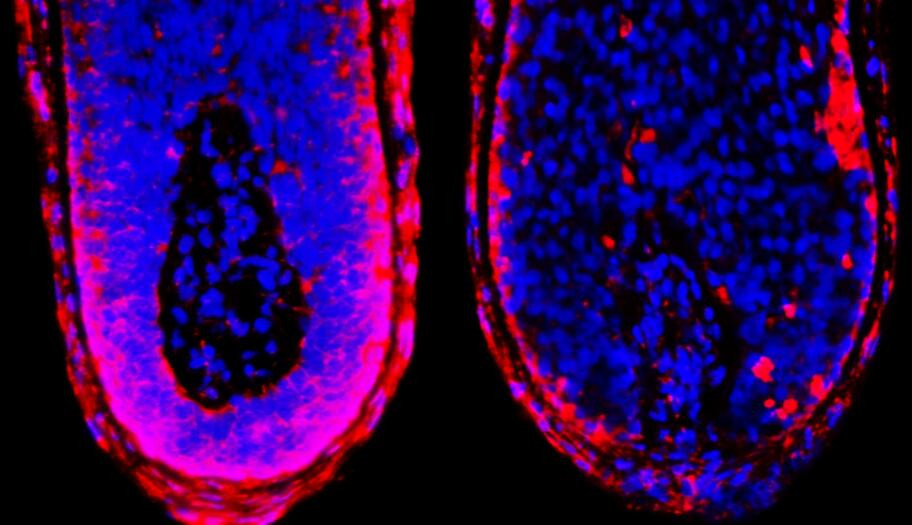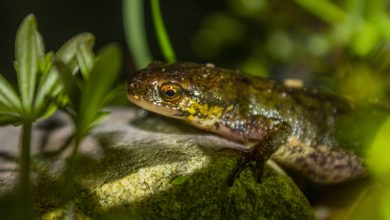Surprising link between ancient biology and restricted human hair growth found

University of Manchester scientists have linked one of the ways that cells respond to stressful conditions with restricted healthy hair growth.
The Manchester Hair Research Group team unexpectedly discovered the link in a lab experiment where they were testing a drug to see if it cultivates human scalp hair follicles in a dish.
The study inadvertently led to a link to the cellular stress response – an ancient biological mechanism which occurs across life from yeast and roundworms through to humans.
The team hope that by targeting the pathway, treatments for hair loss might one day be found.
Known in full as the Integrated Stress Response- or ISR- it is triggered in stressful cellular conditions such as poor nutrient availability, viral infection, or when there is a build-up of misshaped proteins in cells.
The ISR allows cells to put a brake on regular activities by making less new proteins, entering a partial stasis to adapt and deal with the stress. However, if it doesn’t work, it can cause cells to die.
ISR is already the subject of great interest to scientists studying cancer, neurodegenerative disorders and ageing.
The study is published in the peer-review open access journal PLOS ONE today (insert date).
Dr Talveen Purba, Research Fellow at The University of Manchester and senior author of the study said “We were testing a drug that targets metabolism in human hair follicles to influence how cells generate energy, which based on the work of others, we expected to stimulate stem cells.”
“However we found the opposite was true: hair growth was instead blocked, as cells, including stem cells, quickly stopped dividing.”
They also found signs that mitochondria, the power plants inside cells, were dysfunctional, and there were disruptions in how cells communicate with each other.
Using a combination of experimental approaches to look more closely, they found signs that ISR activation was to blame.
Derek Pye, chief technician of the research group and co-author of the study said “When we look at hair follicles under the microscope, it’s striking how consistent the response is between hair follicles from different people.”
Following on from this early-stage research, the team are now looking to better understand the broader implications of the ISR in hair follicles, and look at its activity in people with hair loss conditions.
Dr Purba added: “We’re incredibly hopeful as we believe the activation of this pathway could play an important biological role in restricting hair growth in people with hair loss conditions, meaning that targeting it could lead to new treatments”.
The research paper entitled “Activation of the integrated stress response in human hair follicles” is available online in the journal PLOS ONE here:
Image: Side by side comparison of untreated (left) and stressed (right) hair follicles highlighting changes to mitochondrial distribution (red)





Has anyone recently looked at mitochondrial disfunction in ME/CFS?